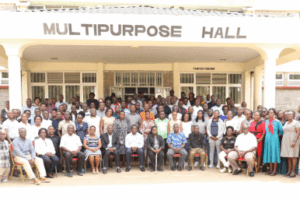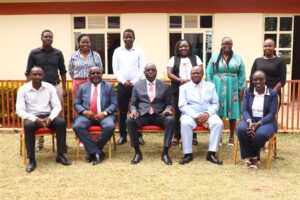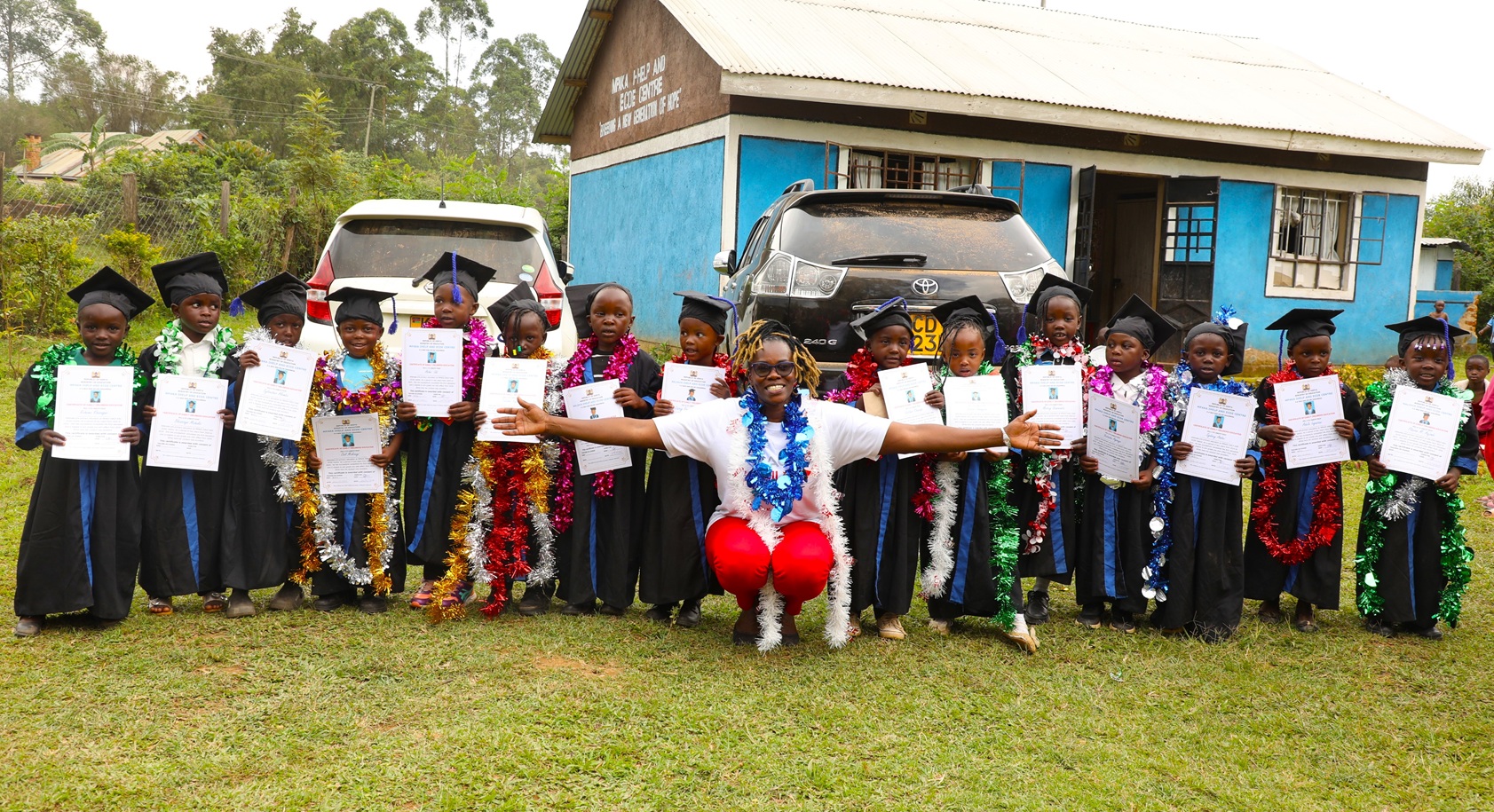
MMUST’s IHELP Project Marks Major Milestone as ‘Shima Group’ Releases First Cohort of Learners to Join Comprehensive Schools in 2026
Masinde Muliro University of Science and Technology’s IHELP project has marked a major stride as the ‘SHIMA Group of iHELP and Early Childhood Development Education (ECDE) Centres’ released its first cohort of learners to join comprehensive schools in 2026. SHIMA Group is among the centres established under iHELP project, a community-led initiative steered by the Associate Dean, School of Education- Dr. Rose Opiyo. Over the past three years, the project has been successfully implemented in Ikolomani Sub-County, where it has transformed early learning experiences through a play-based and inclusive model of education. This transition was marked by a colorful ceremony held on 24th October 2025 to celebrate the milestone, bringing together parents, teachers and community leaders.
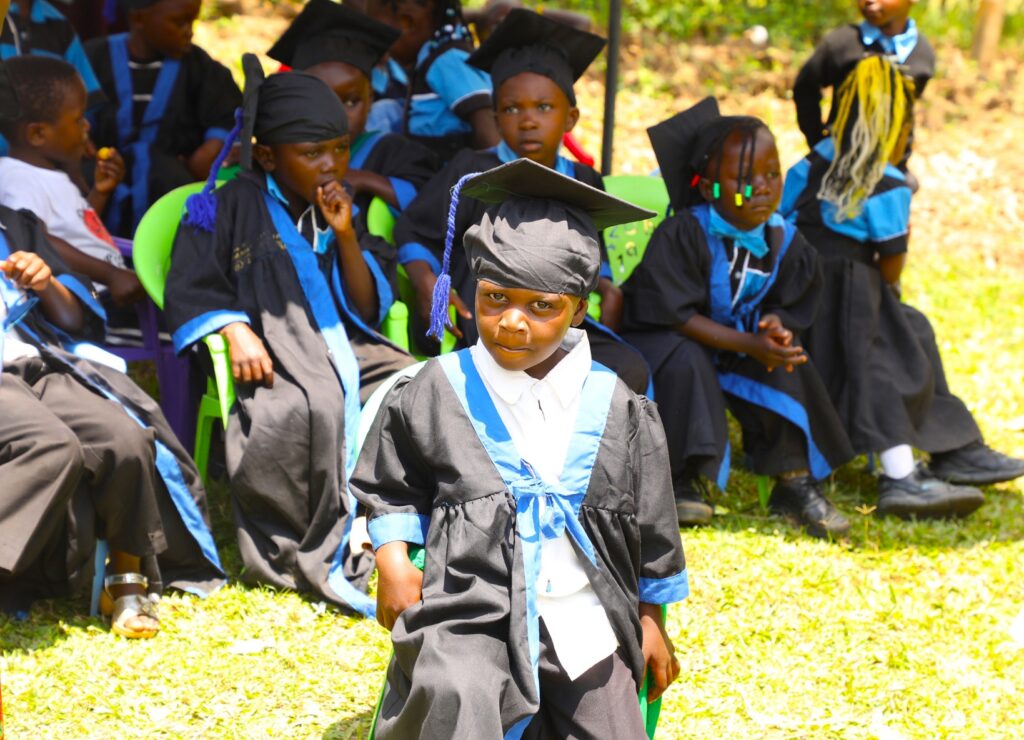
A section of the learners at the event.
Jointly supported by the International Development Research Centre (IDRC) and the Global Partnership for Education (GPE), the iHELP project seeks to promote inclusive, community-driven learning by equipping caregivers, teachers, and parents with the skills and tools to nurture children within their home and community environments.
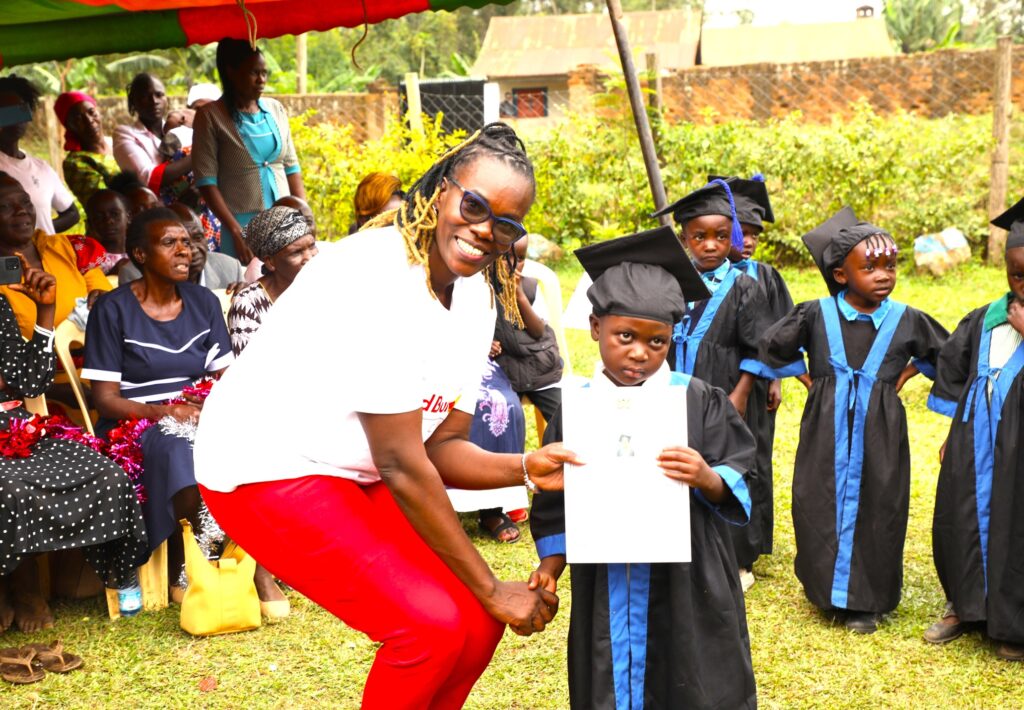
Dr. Opiyo hands over a certificate to one of the learners.
Speaking during the event, the Principal Investigator of the iHELP Project, Dr. Opiyo, lauded the milestone and appreciated the community for fully embracing the initiative. Dr. Opiyo further pointed out that out of the six centres established under the iHELP Project, Mpaka, Indete, and Naliava Centres have demonstrated outstanding progress in implementing the project’s model. She pledged her continued support to ensure the sustainability of all the centres and to scale up best practices that have proven effective in enhancing early learning outcomes.
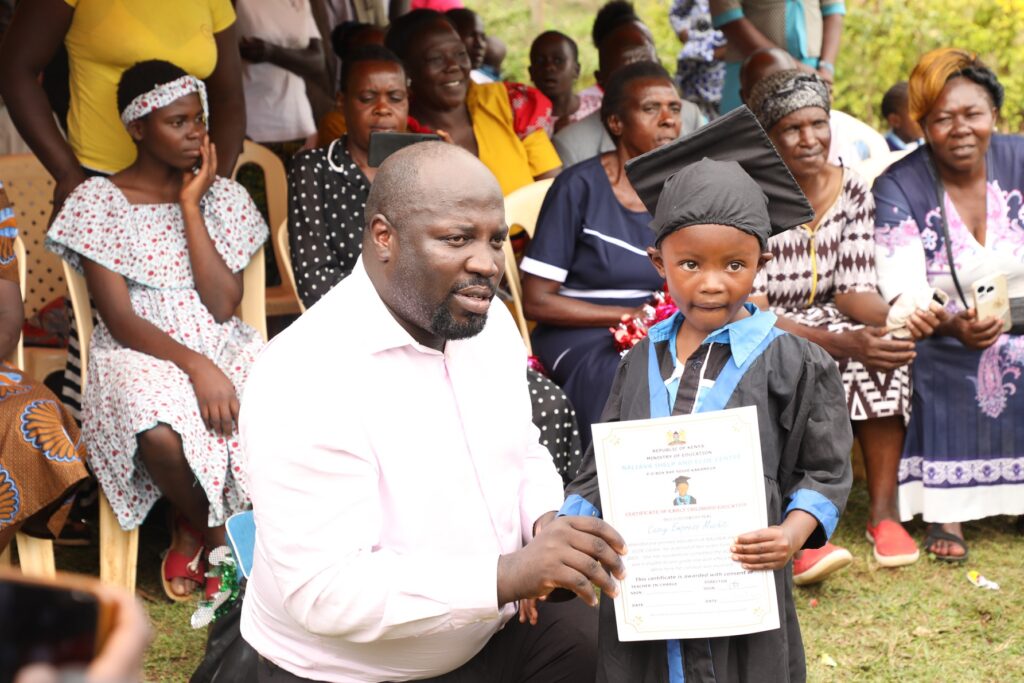
One of the project partners, Mr. Edwin Amina from Undugu Family of Hope, hands awards a certificate to one of the learners.
The event was also graced by key partners who have come on board to support the sustainability of the iHELP Project. These included Mr. Edwin Amina from Undugu Family of Hope, Ms. Mildred Ichingwa from Women and Nature Organization, and Ms. Maxine Khasoha, Idakho East Ward MCA aspirant. They assured their continued support towards enhancing the project’s sustainability through community mobilization, resource mobilization, and advocacy for child-centered learning initiatives.
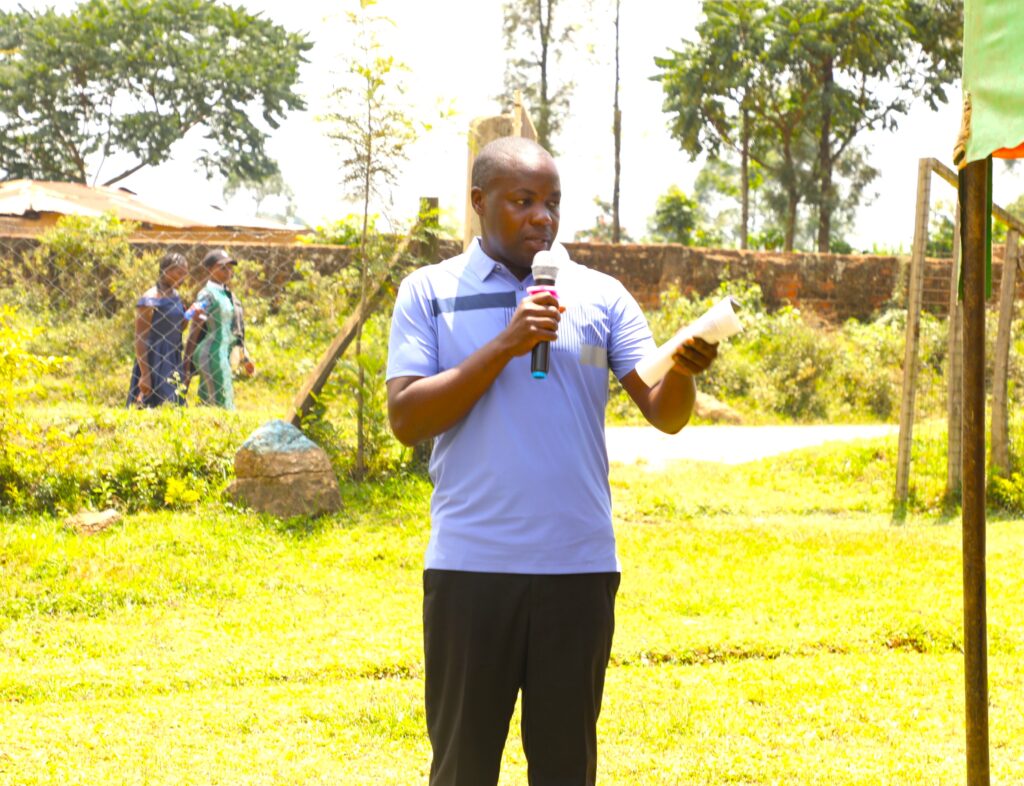
The Shiveye Community Administrator, Mr. Chris Wanga speaks at the event.
Coordinated by the Shiveye Community Administrator, Mr. Chris Wanga, the ‘SHIMA Group of iHELP Centres’ released fifteen learners who have successfully completed their foundational learning programme. Mr. Wanga expressed delight in the success of the project, noting that they have already identified schools within the region where the learners will be enrolled. He emphasized that this approach will enable continuous tracking of the learners’ academic progress and help assess the long-term impact of the iHELP initiative on learners’ development.
“We are proud to see these young learners take their next step with confidence. By following up on their progress, we will ensure that the skills and values imparted at SHIMA Centres translate into measurable academic and social growth,” said Mr. Wanga.
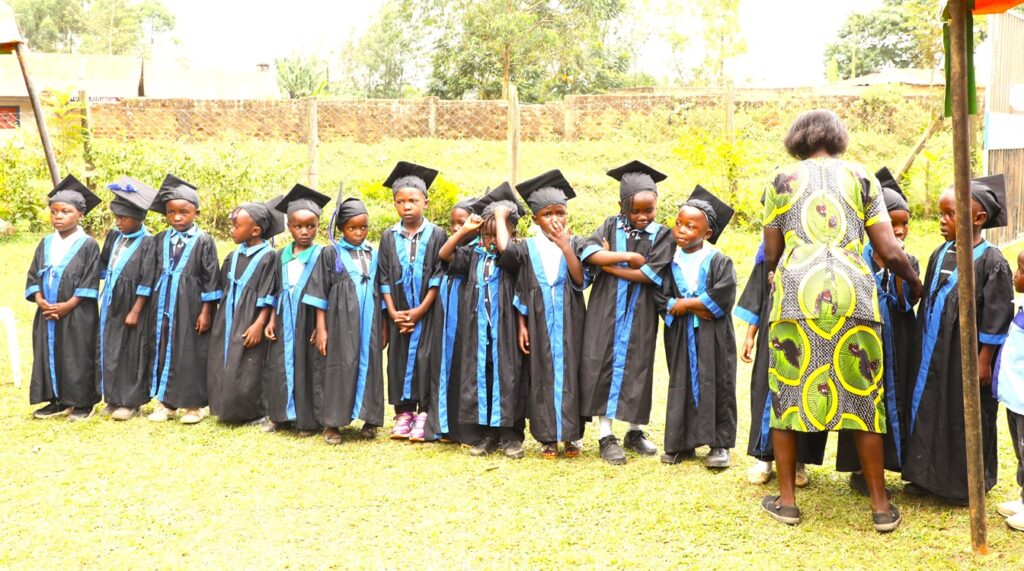
The IHELP Project learners.
Parents and community leaders present at the event commended MMUST for this initiative noting that the iHELP Project has helped bridge gaps in early childhood education, particularly in marginalized communities like Shiveye.
A member of the Community Committee gives his remarks at the event.
As a University, we take pride in the success of the iHELP project, which reflects MMUST’s commitment to advancing inclusive education through research, innovation, and community engagement. This iHELP initiative is one of the projects that is fully community-owned and has proven to transform early learning by fostering shared responsibility among parents, caregivers, and educators. Its success lies in empowering communities to take charge of their children’s education, ensuring sustainability and long-term impact.


